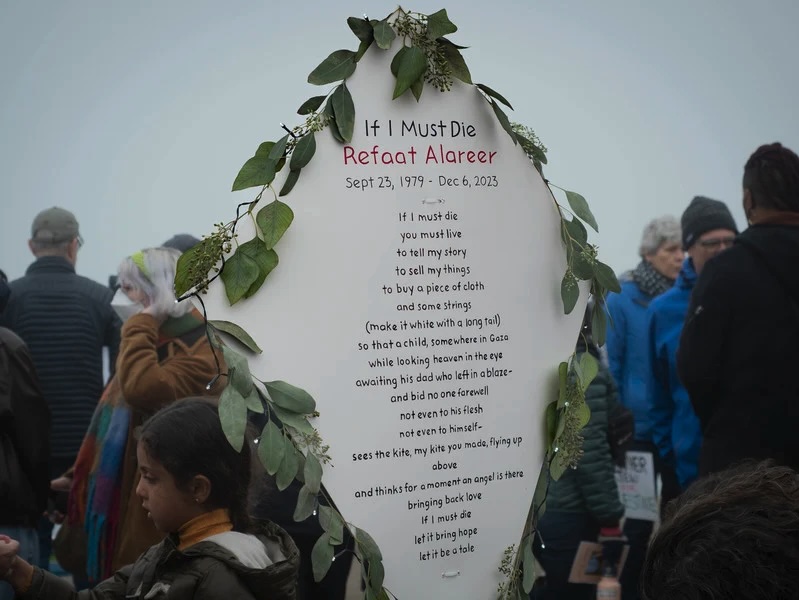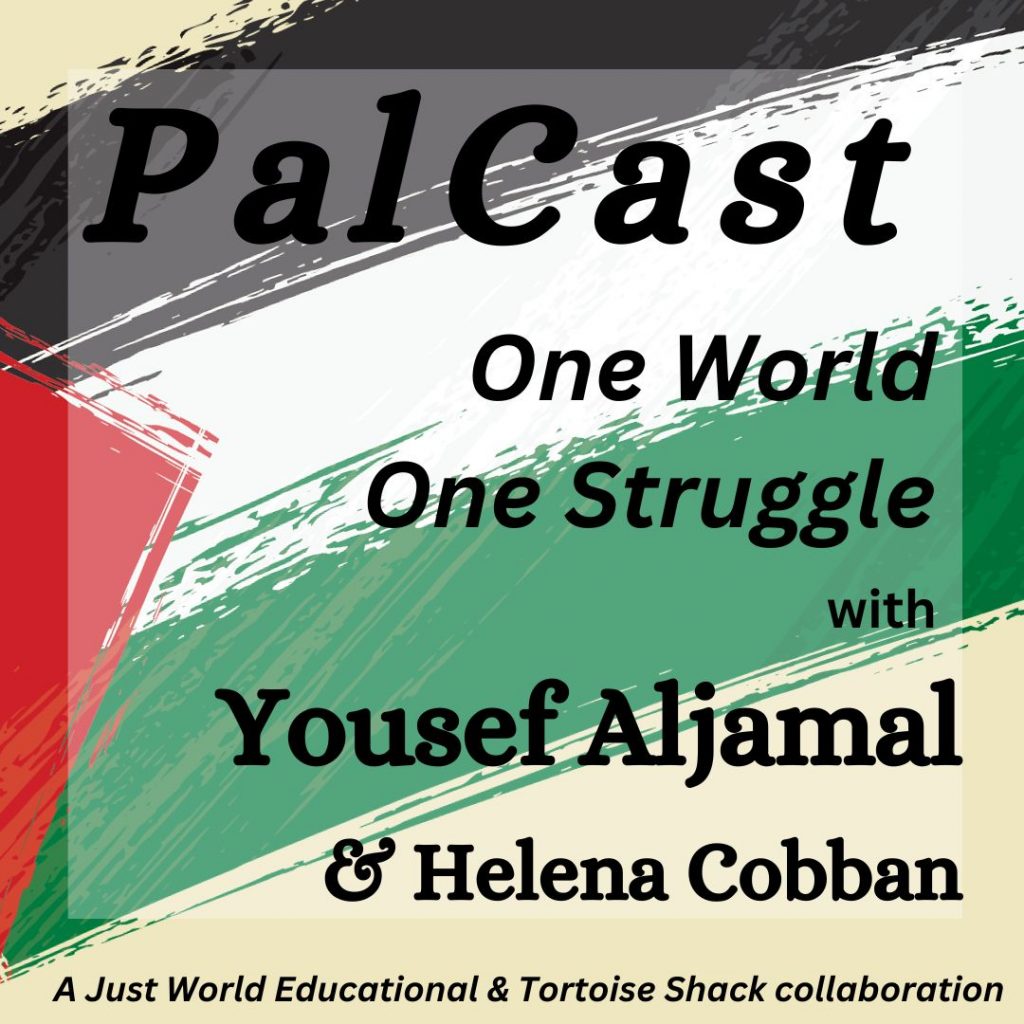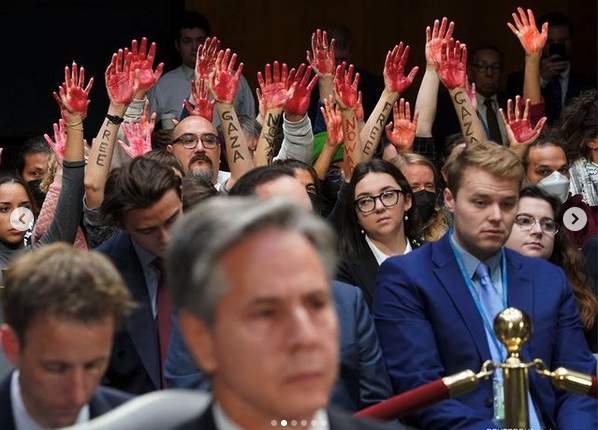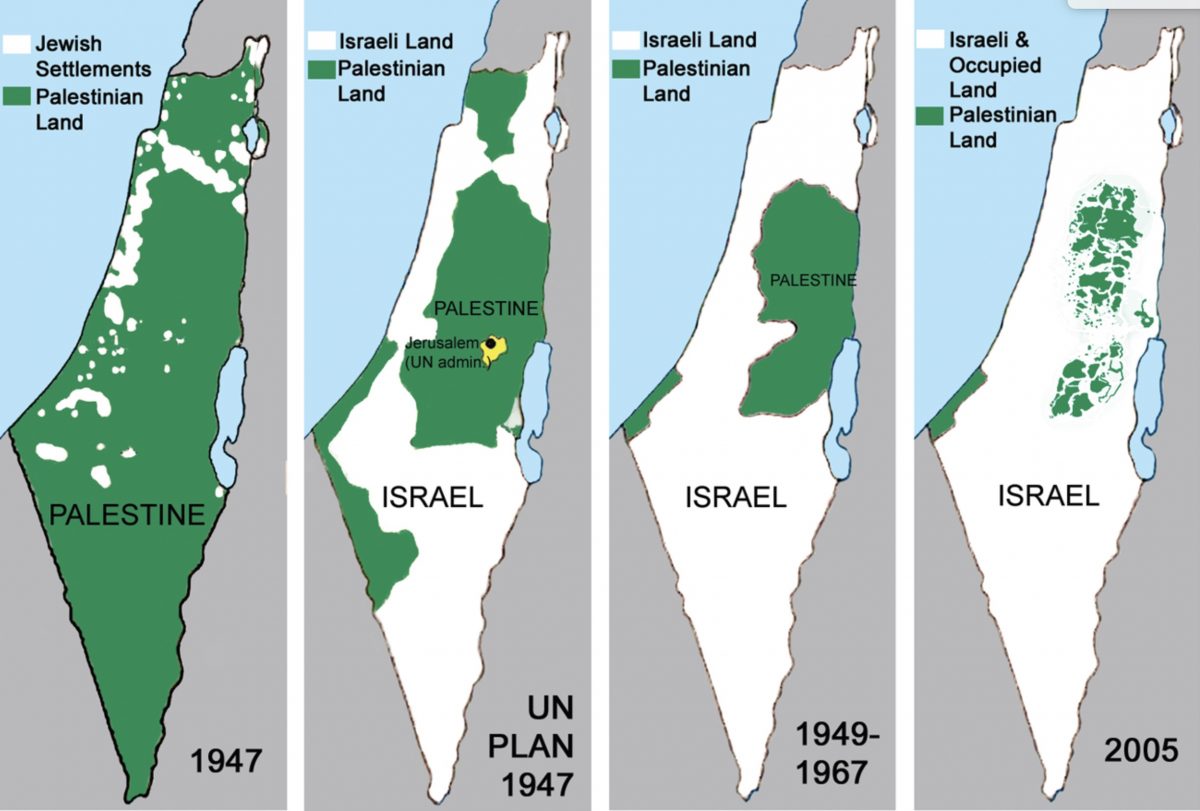Above, an UNRWA school in Gaza serving as a shelter for thousands of Palestinians displaced by Israel’s assault
Let us be clear. Israel—a country whose entire existence is the result of the Partition Plan for Palestine that the United Nations adopted in 1947—has a long and serious record of defying U.N. resolutions. Then suddenly, on Friday, Israeli government spokesmen surfaced their accusation that 12 staff members of the UN’s relief agency for Palestinian refugees, UNRWA, had been involved in some way in the Hamas-led breakout into Israel on October 7.
Think about it:
- The existence those accusations was publicized on the exact same day the International Court of Justice was scheduled to announce its interim ruling on South Africa’s accusation that Israel is committing genocide in Gaza. Quelle coincidence! Hey, to the governments and government lackeys of the world: Don’t look over there at The Hague; Look over here! (Presumably, though, whatever “evidence” the Israeli authorities had been basing their accusations on must have been gathered many weeks ago and may also have been shared with the UNRWA head a while ago, too.)
- The nature of the accusations has never been revealed. All that we have been told is that they involved 12 members of an UNRWA workforce in Gaza that totals 13,000 people (of whom, by the way, more than 150 have already been killed in Israel’s bombardment.) But neither Israel nor UNRWA head Philippe Lazzarini, with whom the accusations were earlier shared, has ever revealed any of the relevant details such as: what acts those staff members were accused of; what level of staff members they were; and whether they were given any chance to refute the accusations.
- Instead, according to both Israeli officials and Lazzarini, Israel had shared the accusations—at some undisclosed earlier date—with him and his staff; and at some later date he fired the 12 accused staff members. We have heard no information from UNRWA, which is an international public body, regarding: when all that happened; what kind of an internal investigative process Lazzarini pursued, and how long it took; and what were the results of any such investigation. Hey, for all we know, the Israelis may have initially accused many more than those 12 people who lost their jobs, and UNRWA was able to refute many of those accusations? We don’t know. But doesn’t the global public that pays Lazzarini’s salary deserve to know all this?
- So on January 26, immediately upon the Israelis revealing the existence of its accusations and of UNRWA’s firing of the 12 individuals, the U.S. government and half a dozen other “White”-country governments all decided to withhold their contributions to all of UNRWA, with immediate effect. This was kowtowing to the government of Israel of the very first order! One can only assume that all these governments were just delighted to have some Gaza-related news to react to (and to contribute to) that was not the ICJ’s very clear, anti-Israel ruling…





